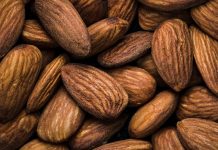
Introduction
Hypertension, or high blood pressure, is a widespread health concern globally, often leading to severe conditions such as heart disease and stroke.
Among various dietary components, sugar intake has been the subject of extensive research concerning its role in the development of hypertension.
This review aims to provide an in-depth look at the current research on the relationship between sugar consumption and high blood pressure.
Understanding Sugar’s Role in Diet and Health
Sugars, specifically sucrose (table sugar), glucose, and fructose, are carbohydrates that provide energy for the body.
However, excessive intake of added sugars, commonly found in soft drinks, sweetened snacks, and processed foods, can lead to several health issues, including obesity, diabetes, and heart disease.
The Sugar-Hypertension Link
There is growing evidence suggesting a strong link between high sugar intake, particularly in the form of sugar-sweetened beverages, and high blood pressure.
This association has been attributed to various mechanisms, including increased insulin resistance, weight gain, and heightened response to stress.
The Impact of Sugar-Sweetened Beverages
A significant body of research points towards the detrimental effects of sugar-sweetened beverages on blood pressure.
A study published in “Hypertension” found that individuals consuming one or more sugary drinks daily had a higher risk of developing hypertension than those who consumed less.
This elevated risk remained even after adjusting for factors such as age, sex, physical activity level, and total caloric intake.
Fructose and Blood Pressure
Fructose, a type of sugar found in many sweetened foods and beverages, has been heavily scrutinized for its role in promoting high blood pressure.
Unlike glucose, which can be metabolized by all body cells, fructose is primarily processed in the liver.
Excessive intake can lead to increased uric acid levels, promoting insulin resistance and impairing the body’s ability to excrete sodium, thus leading to higher blood pressure levels.
The Role of Insulin Resistance
The high intake of sugars, especially fructose, has been associated with insulin resistance, a condition where cells become less responsive to insulin, leading to higher insulin and glucose levels in the blood.
Research has shown that insulin resistance can lead to increased sodium retention in the kidneys, contributing to high blood pressure.
Dietary Recommendations and Future Research
Given the mounting evidence linking high sugar intake with hypertension, many health organizations recommend limiting added sugars in the diet.
The American Heart Association, for instance, advises women to consume no more than 6 teaspoons (25 grams) and men no more than 9 teaspoons (37.5 grams) of added sugar per day.
However, much of the current research is observational, meaning it can demonstrate associations but cannot prove cause-and-effect relationships.
Further research, particularly randomized controlled trials, is needed to substantiate these findings and clarify the underlying mechanisms.
Conclusion
In conclusion, there is compelling evidence suggesting a strong link between high sugar intake and the development of high blood pressure.
While more research is needed to fully understand the mechanisms involved, it’s clear that reducing sugar intake, especially from sugar-sweetened beverages and processed foods, is a vital step towards controlling blood pressure and improving overall health.
As always, it’s essential to maintain a balanced diet, regular physical activity, and a healthy lifestyle for optimal blood pressure control.
Personalized advice from healthcare professionals is indispensable when considering dietary changes for managing health conditions such as high blood pressure.
Copyright © 2023 Scientific Diet. All rights reserved.








